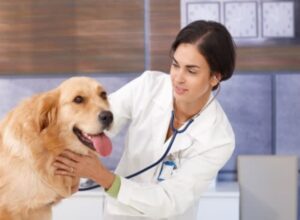Air Quality and Pet Safety

Most people know that outdoor air pollution is a problem, and there’s a growing awareness of the dangers of indoor air pollution. What you may not realize is that, in addition to being harmful to humans, air quality can also have a major impact on pets. What are the risks, and how can you protect your pets from harm?
When we talk about air pollution, we’re referring to a broad range of airborne pollutants. These can be chemicals, gases, solid particles, or liquid droplets, and can come from both human-made and natural sources. Outdoor air pollution is more prevalent in urban areas, but indoor air pollution can be just as dangerous as the contaminants outdoors. While outdoor pollutants come from emissions from things like vehicles and factories, indoor air pollution comes from natural sources like radon or mold and human-made sources like insulation and smoking.
While most research on air pollution has focused on its impact on humans, there are many studies pointing to the harm it can cause to pets. For example, dogs who live in homes where pesticides are used outdoors have a 70 percent higher chance of developing lymphoma. Cats who live in homes where indoor air pollutants from cooking, smoking, and household chemicals are found in higher concentrations are more likely to develop respiratory diseases, including lung cancer. Outdoor dogs who are exposed to heavy air pollution show inflammation and proteins in their brains that are present in humans with Alzheimer’s disease.
How can you help protect your pets from the negative effects of air pollution? Be proactive in improving your home’s air quality.
To reduce indoor pollution:
- Change your HVAC filters regularly.
- Vacuum regularly.
- Avoid smoking indoors.
- Use cleaning products that are pet- friendly as well as being environmentally-friendly.
- Consider using an air purifier.
To reduce outdoor pollution:
- Exercise your pet in low-traffic areas.
- Avoid the use of chemical pesticides in your yard.
- Keep pets indoors during periods of low air quality.
- Time your walks for times when the air quality is good.
- Provide plenty of water so that your pets stay well-hydrated.
Sometimes, despite your best efforts to keep the air clean, your pet can still have respiratory difficulties. If you notice that your pet seems to be having respiratory issues, especially if he or she is having trouble breathing, seek medical care as soon as possible. At Reed Animal Hospital, we treat your pets as if they were our own. Our goal is to help you and your pet enjoy a healthy, fulfilling life together, so our extraordinary team offers a wide range of services. We’ve got veterinarians, technicians, assistants, and receptionists, all prepared to help you and your pet, and we even offer referrals to specialty surgeons, many of whom will travel to our office to consult with you. For more information or to make an appointment, call us in Campbell at 408-369-1788, or in Saratoga at 408-647-2906.
